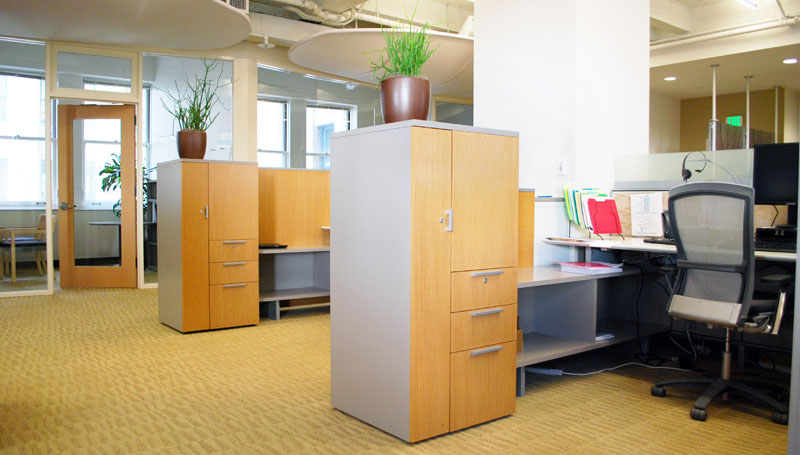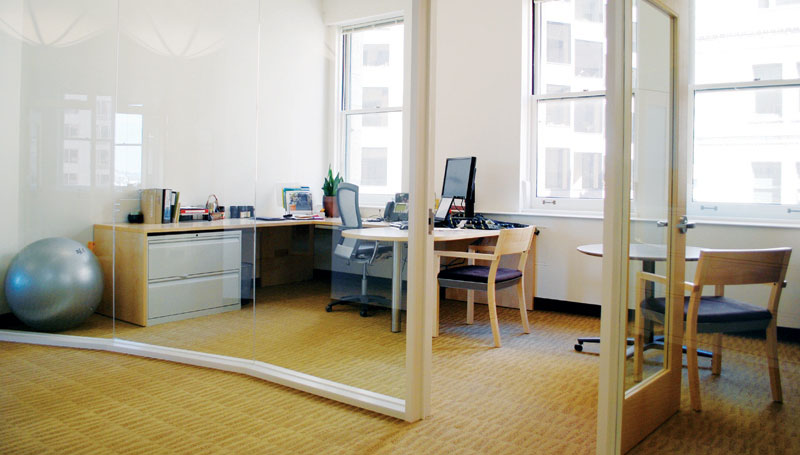The Response
“The green qualities and materials used in District were deciding factors in its
selection by the ClimateWorks Foundation,” says Catherine Brannan, Account
Manager with SideMark, Teknion’s dealer-partner on the project. “The client
was also struck by District’s nice layered look, plus its interesting storage options.
ClimateWorks is very happy with District. For a recent expansion, the foundation
chose to replicate the District workstation design from Phase 1 of the project.”
ClimateWorks was also influenced by District’s successful installation three years
earlier at the San Francisco-based Energy Foundation, the first project in California to achieve LEED-CI Platinum certification. “We won this installation thanks to a great product and our experience with other LEED projects,” adds Brannan.
Described as a warm and inviting space, the ClimateWorks office houses 48
District workstations. Inspired by the low, horizontal lines of mid-century modern
furniture and the lighter scale of European products, District cabinets and desks
look like real furniture yet provide the flexibility and functional advantages of
systems. For the ClimateWorks project, District workstations feature tackboards
with 100 percent recycled polyester panel fabric. Teknion also supplied FSCcertified cores and veneers on the Flintwood product. Other Teknion product
includes 30 Synapse wood side chairs, specified due to its strong sustainable
attributes.
“The ClimateWorks Foundation’s new office fosters creative interaction among
staff, accommodates future growth and welcomes international visitors – everything it was designed to do,” says Tony Smith, A & D Market Manager based in
Teknion’s San Francisco showroom. “The client wanted a healthy, resource-efficient workplace that reflects the importance of energy efficiency and carbon reduction while reinforcing its corporate culture. The informal living room, workstations and office locations support collaborative space while maintaining important staff adjacencies.”

Inspired by the low, horizontal lines of mid-century modern furniture and the lighter scale of European products, District cabinets and desks look like real furniture yet provide the flexibility and functional advantages of systems.

"The informal living room, workstations and office locations support collaborative space while maintaining important staff adjacencies.”